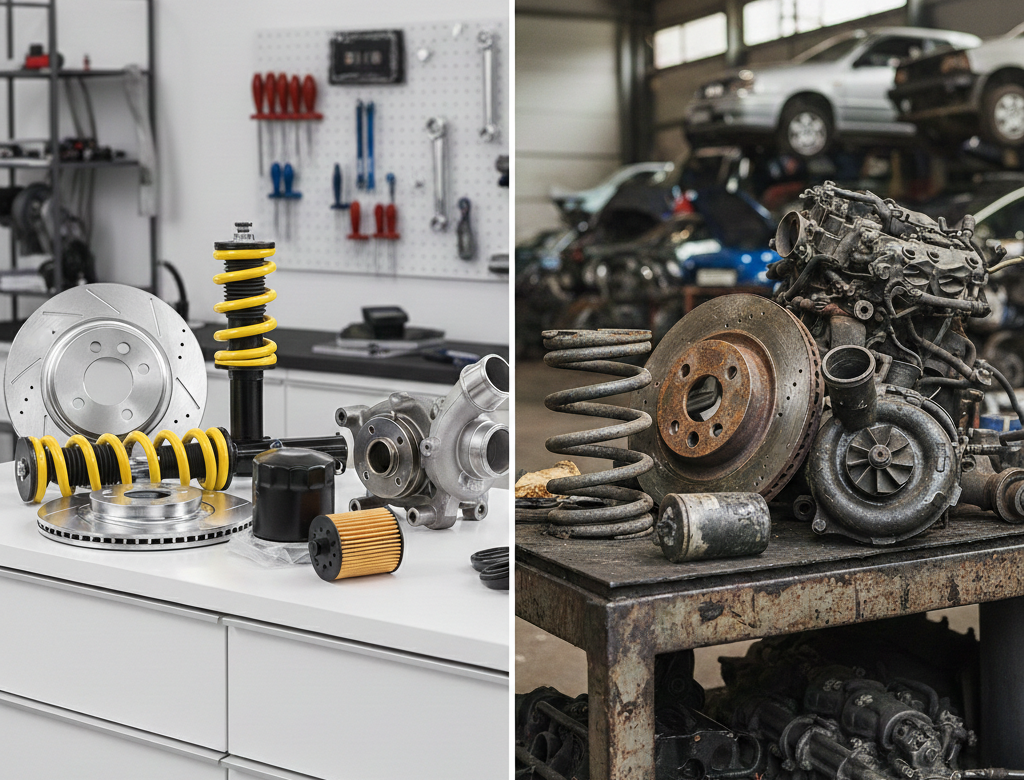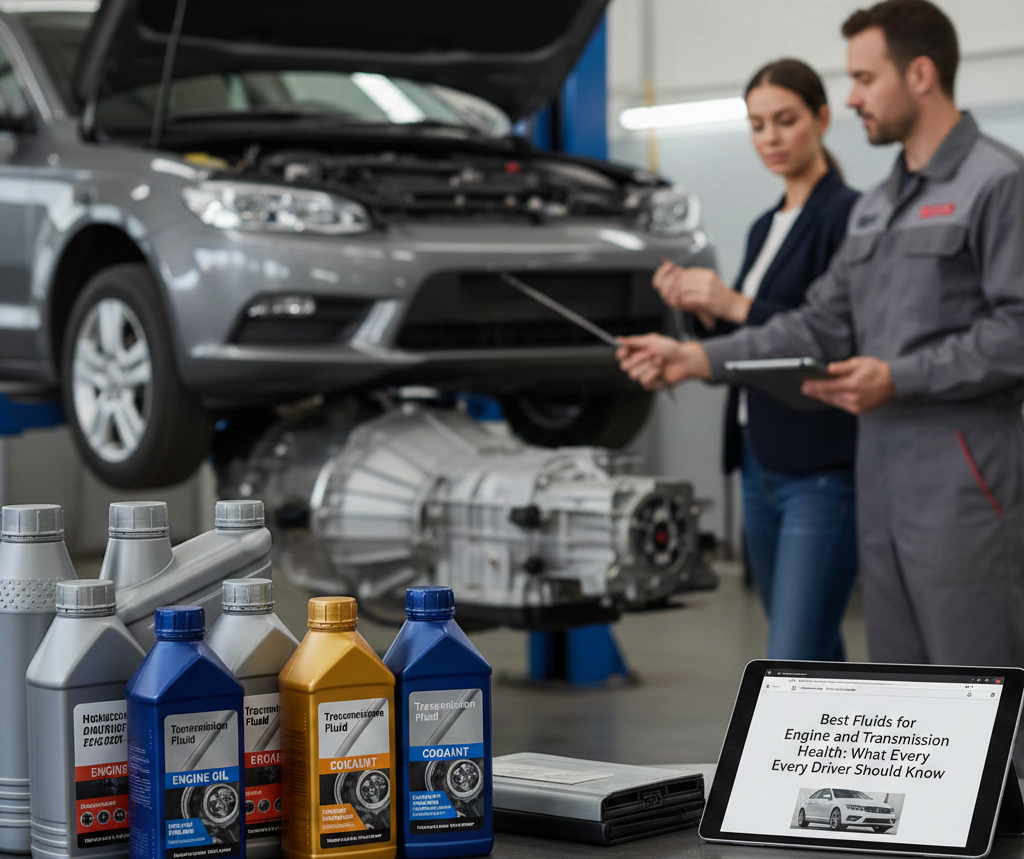

Your car’s engine is the heart of your vehicle - the source of all the power that keeps you moving. When it’s running well, you hardly think about it. But when something goes wrong, even a small issue can lead to major trouble and expensive repairs. Recognizing early signs of engine problems can save you from breakdowns, improve performance, and extend your car’s lifespan.
Engines are complex systems made up of hundreds of parts that work together under extreme heat and pressure. Over time, wear and tear, poor maintenance, or defective parts can cause malfunctions. Whether you drive a brand-new car or an older one, understanding these common engine problems will help you keep your vehicle in top shape.
An overheating engine is one of the most serious problems any car owner can face. When your engine temperature rises beyond normal levels, it can cause severe internal damage - even a blown head gasket. The most common causes include low coolant levels, a faulty thermostat, a broken water pump, or a clogged radiator.
You might notice the temperature gauge climbing, steam coming from under the hood, or a burning smell. Ignoring these signs can cause the engine block to crack or warp, leading to costly repairs.
How to Prevent It: Check coolant levels regularly, replace old coolant, and ensure the radiator and fans are working properly. Always stop the car if the temperature warning light appears - continuing to drive can destroy the engine completely.
A misfire happens when one or more cylinders in your engine fail to ignite the air-fuel mixture properly. This causes uneven performance, rough idling, reduced fuel efficiency, and poor acceleration. Common reasons include faulty spark plugs, bad ignition coils, or issues with the fuel injectors. A misfiring engine not only affects your driving comfort but can also damage your catalytic converter over time.
How to Prevent It:
Replace spark plugs and ignition components as recommended in your maintenance schedule. Use good-quality fuel and consider periodic fuel injector cleaning.
Engine oil lubricates, cools, and cleans moving parts. However, if you spot oil stains under your car or smell burning oil, it’s likely there’s a leak. Common causes include worn-out gaskets, a damaged oil pan, or loose oil filter connections.
Oil leaks can lower your oil levels, increasing friction between engine components and leading to overheating and potential engine seizure.
How to Prevent It:
Regularly inspect the engine bay and the area beneath your vehicle for leaks. Check your oil level every month and get professional service if it drops frequently or the oil warning light comes on.
If your car vibrates or struggles to stay on when idling, it could be due to problems with the air-fuel mixture, dirty fuel injectors, or a malfunctioning sensor. A clogged air filter or failing mass airflow sensor can also lead to stalling or rough idling.
This issue can be frustrating, especially in traffic, and ignoring it may worsen engine wear over time.
How to Prevent It:
Keep your air filters clean, use high-quality fuel, and have your engine’s sensors checked regularly. Periodic tune-ups help ensure the engine idles smoothly and runs efficiently.
The check engine light (CEL) is often a source of anxiety for drivers. It can indicate anything from a loose gas cap to a serious engine malfunction. This light turns on when the onboard diagnostic system (OBD-II) detects irregularities in the engine’s performance, emissions, or other related components.
How to Handle It:
Never ignore the check engine light. Visit a mechanic as soon as possible to get a diagnostic scan. Many auto parts stores offer free scanning services to identify the problem. Acting early can save you from a costly repair.
Unusual noises from the engine - such as knocking, ticking, or tapping - often signal internal issues. Knocking sounds can be caused by improper fuel combustion, worn bearings, or a faulty timing belt. Ticking noises might indicate problems with valve lifters or low oil pressure.
If left untreated, these noises can lead to complete engine failure.
How to Prevent It:
Always use the correct octane fuel recommended by your car manufacturer. Maintain proper oil levels and change the oil regularly. If you hear persistent noises, get your vehicle inspected immediately.
Smoke from the exhaust pipe is never a good sign. Different smoke colors indicate different problems:
1) Blue smoke means the engine is burning oil - possibly due to worn piston rings or valve seals.
2) White smoke can indicate coolant leakage into the combustion chamber, often caused by a blown head gasket.
3) Black smoke suggests too much fuel is burning, possibly from a faulty fuel injector or clogged air filter.
How to Prevent It:
Regular servicing and replacing worn seals, filters, and gaskets can help prevent these problems. Always address unusual smoke immediately to avoid long-term damage.
If your car feels sluggish or struggles to accelerate, it could be due to a clogged fuel filter, dirty air filter, malfunctioning oxygen sensor, or issues with the fuel injectors. A weak fuel pump or faulty turbocharger can also cause performance drops.
Loss of power can affect not only performance but also fuel efficiency and safety during overtaking.
How to Prevent It:
Routine inspections and maintenance can help identify and replace failing components early. Cleaning or replacing filters regularly also helps maintain smooth engine performance.
If your car suddenly starts consuming more fuel than usual, it’s often a sign of an inefficient engine. Causes may include worn spark plugs, dirty air filters, low tire pressure, or malfunctioning oxygen sensors.
A drop in fuel economy may seem minor but can indicate deeper engine issues that worsen over time.
How to Prevent It:
Maintain proper tire pressure, use the correct motor oil grade, and ensure all engine components are functioning efficiently. Regular tune-ups and timely oil changes go a long way in saving fuel.
A burning oil smell, a sweet coolant scent, or the odor of unburned fuel are clear warning signs. These smells often indicate fluid leaks, overheating, or exhaust system issues.
Ignoring unusual odors could lead to serious engine or safety problems.
How to Prevent It:
Inspect hoses and seals regularly. If you smell something strange, pull over and check for leaks or overheating.
A car engine is an intricate system that requires consistent attention and care. By understanding the common problems and taking preventive measures, you can avoid breakdowns and keep your vehicle running efficiently for years. Remember, regular maintenance isn’t just about keeping your car on the road - it’s about ensuring safety, reliability, and peace of mind every time you drive.
Common signs include strange noises, warning lights, reduced power, smoke from the exhaust, or fluid leaks. Always get professional diagnostics if you notice these.
Regular maintenance is crucial. Most manufacturers recommend a full service every 5,000–7,500 miles, but this can vary by vehicle type and driving conditions.
Engine failure can result from neglecting oil changes, overheating, driving with low coolant, or ignoring warning signs like knocking sounds and leaks.
Engine failure can result from neglecting oil changes, overheating, driving with low coolant, or ignoring warning signs like knocking sounds and leaks.
Perform regular oil changes, check coolant levels, replace air and fuel filters, and address warning lights promptly. Preventive care is the best way to extend engine life.

